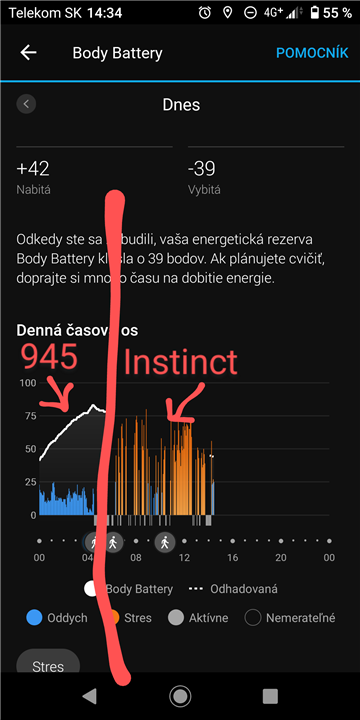I can't understand how body battery works. It is as if that part of the app doesn't communicate with the rest of the app features. This morning I swam 2.25 miles over the course of about 1.5 hours and my body battery went up 12 points!! During this time the data show I had burned 720 active calories. How can I burn that many calories and have the body battery show an increase?? Two nights ago I slept for 6 hours and 5 minutes and my body battery went from 39 to 50. (I usually see a much more substantial gain in body battery with that much sleep.) That day (yesterday) I swam 1.7 miles and my body battery went down 12 points. Ten days ago body battery went from 9 to 52 with 8 hours hours of sleep but with 18,000+ steps the next day it only dropped 12 points all day long. All of this doesn't make much sense to me. Is my app and/or Instinct functioning normally? I am up-to-date on updates as far as I know.



 Sorry. I didn't see the picture icon. back to the body battery problem. on the left shows a white line forerunner 945 and on the right instinct no
Sorry. I didn't see the picture icon. back to the body battery problem. on the left shows a white line forerunner 945 and on the right instinct no